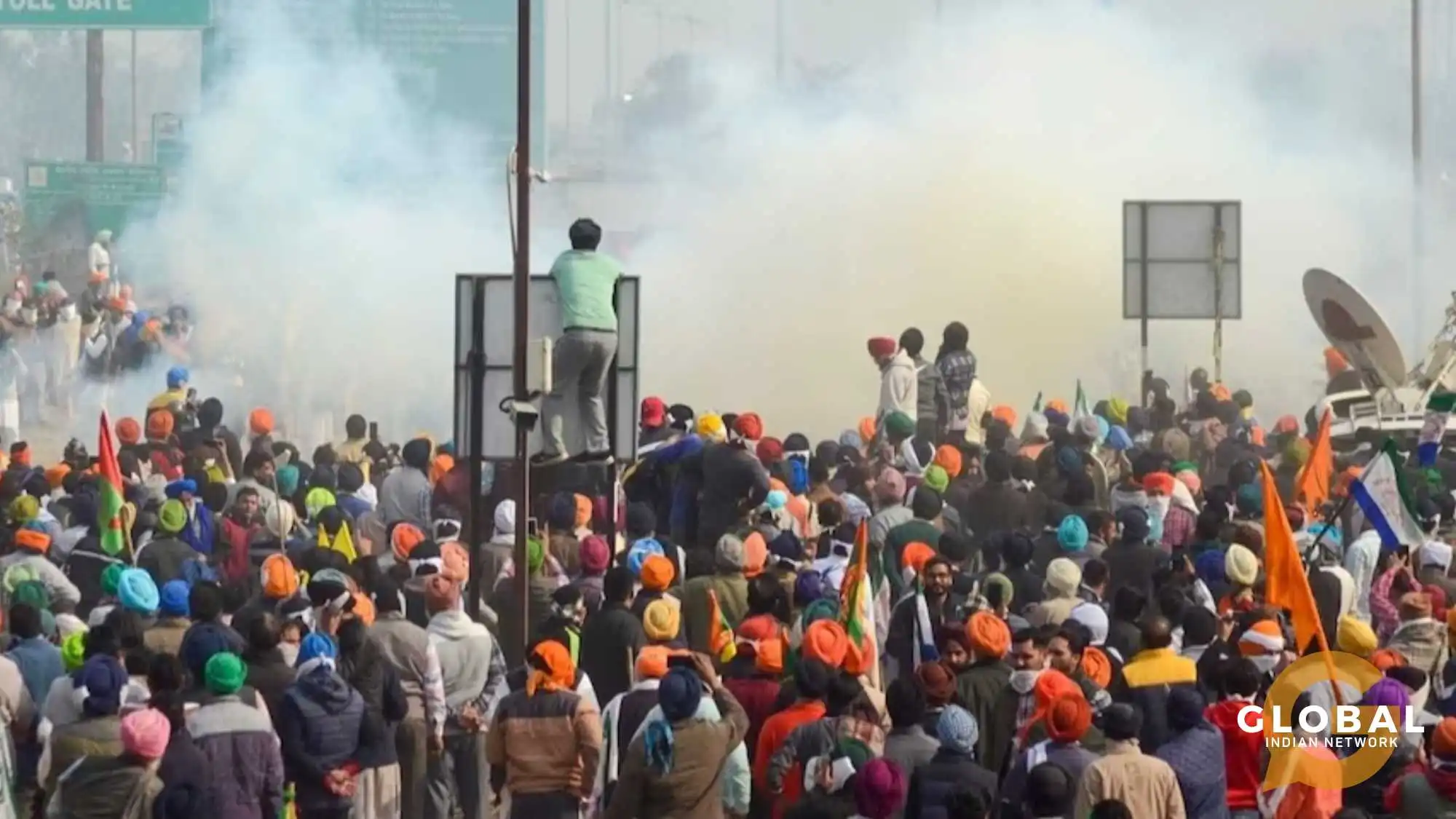None of us will likely forget the farmers’ protest in Delhi in 2020-21, which compelled the Modi government to repeal the three Farm Bills that were speedily passed as an executive order during the COVID-19 pandemic. The farmers sweat it out and braved the rains and the extreme cold to emerge victorious in November 2021.
Sadly, everything is back to square one. The government has yet to take any actions promised almost two years back. The farmers have gathered in Delhi since February 12. The police were ready with their layers of road blockage in the form of concrete barricades, nails, metal barricades, trucks with soil, and anything to stop them from reaching Delhi. Twelve layers of impenetrable barriers were erected in some areas.

On Tuesday, demonstrators were dispersed by dense clouds of tear gas aimed at protestors by the police in the Ambala area, which is located about 200 kilometres (125 miles) north of the capital. At the Sirhaul border and others, the barricades were ready to prevent entry to the ‘Dilli Chalo’ agitation. What this has done to Delhi commute, generally congested at peak hours, is burdensome. What usually takes an hour is taking more than one-and-a-half. The police from Haryana state have also blocked the border. Clashes have been reported in some areas at the Punjab-Haryana border.
So what are their demands this time?
The farmers’ demands include, but are not limited to, an MSP guarantee for 23 crops, debt forgiveness, and the removal of cases brought against them during the 2020–21 farmers’ agitation. In addition, they have requested that the government forgive their debts and grant them pensions. Farmers have stated that counterfeit fertilizers, pesticides, and seeds ought to face consequences. They want the government to increase the number of workdays to 200, the maximum number of workdays under the rural employment guarantee program. In addition, the demonstrators demand that India renounce all free trade agreements and leave the World Trade Organization (WTO).

The general secretary of Punjab’s Kisan Mazdoor Sangharsh Committee, Sarwan Singh Pandher, spoke to the media regarding the farmers’ “Dilli Chalo” protest march. “We say today that we are farmers of this country; we do not fight. We demand MSP guarantee law, implementation of Swaminathan Commission report, which you have accepted,” he said.
In anticipation of the planned farmers’ march, the Delhi Police increased security around Delhi and the NCR and specifically enforced Section 144 of the Criminal Procedure Code (CrPC) in outer Delhi – till March 12 – to prevent gatherings close to the city borders. Section 144 may also be implemented in additional districts if the police consider it necessary. The administration forbids gatherings of four or more people in one location. The Delhi Metro Rail Corporation said on Tuesday that following the farmer’s march towards the National Capital, several gates might be closed in accordance with security directives.

For those unaware of the medium-long-term political implications, here is a fact. The states of Punjab and Delhi are under the leadership of Aam Aadmi Party (AAP). Haryana and Uttar Pradesh are led by the Bharatiya Janata Party (BJP). Congress and the Aam Aadmi Party (AAP) have offered the farmers their support. Shiromani Akali Dal and the BJP have yet to comment.
It was confirmed by the Punjab and Haryana High Court on Tuesday that farmers have the right to protest and that they are Indian citizens with the freedom to travel. The court was considering two Public Interest Litigations (PILs) on the protests by farmers in these states when this decision was made. The next hearing is on February 15.
Punjabi authorities have objected to Haryana’s use of a drone to drop tear gas shells on protesting farmers in their territory near the Shambhu border on Tuesday. Meanwhile, Congressman Rahul Gandhi has cancelled the most recent leg of the Bharat Jodo Nyay Yatra in Jharkhand. The Congress leader will instead be taking part in the farmers’ protest. Internet services have been suspended in seven districts of Haryana till February 15.
In response to the ongoing farmer protests, the government has made it clear that it will monitor social media content to prevent the spread of false information and uphold law and order. They use specialized teams and technology to monitor online conversations and take appropriate action against any content that might incite violence or unrest.
We have more information to share with you in the coming days.
Be with us. Be informed. Be empowered.











The Article is titled “Will the current Farmer’s Protest in Delhi —- vote this year.”. The text of article does not give any idea / suggestion on Title. No suggestion on the impact of the Title.